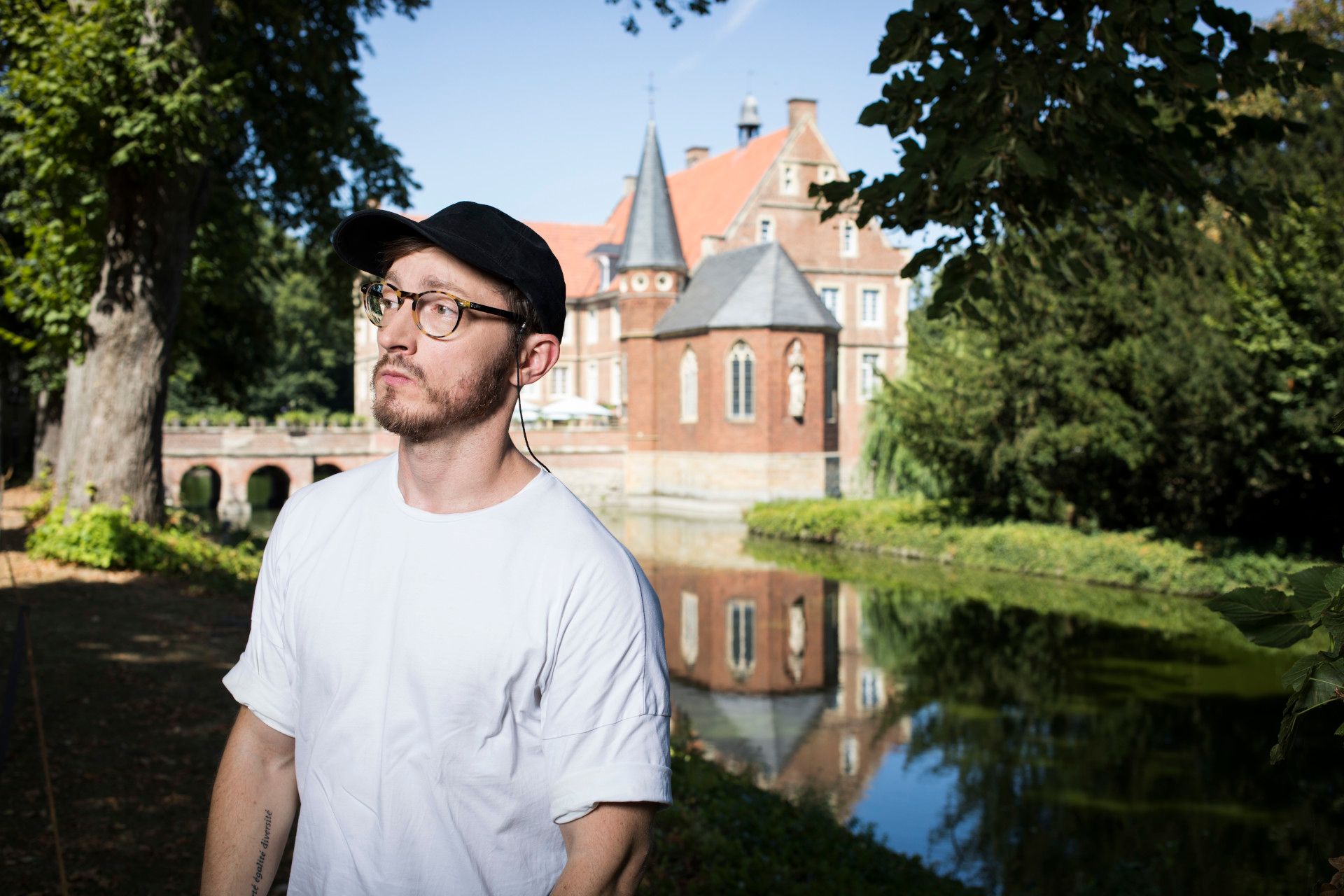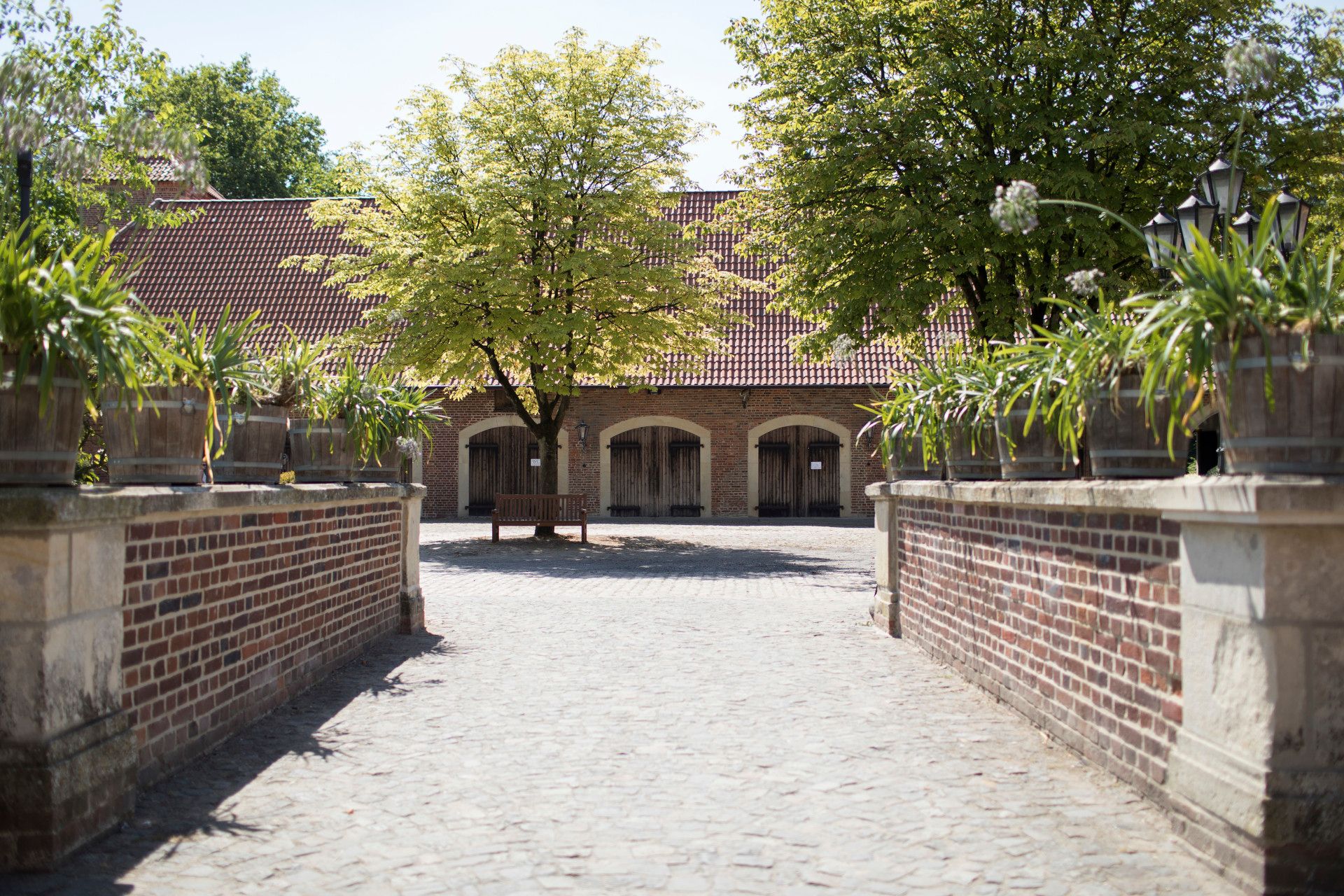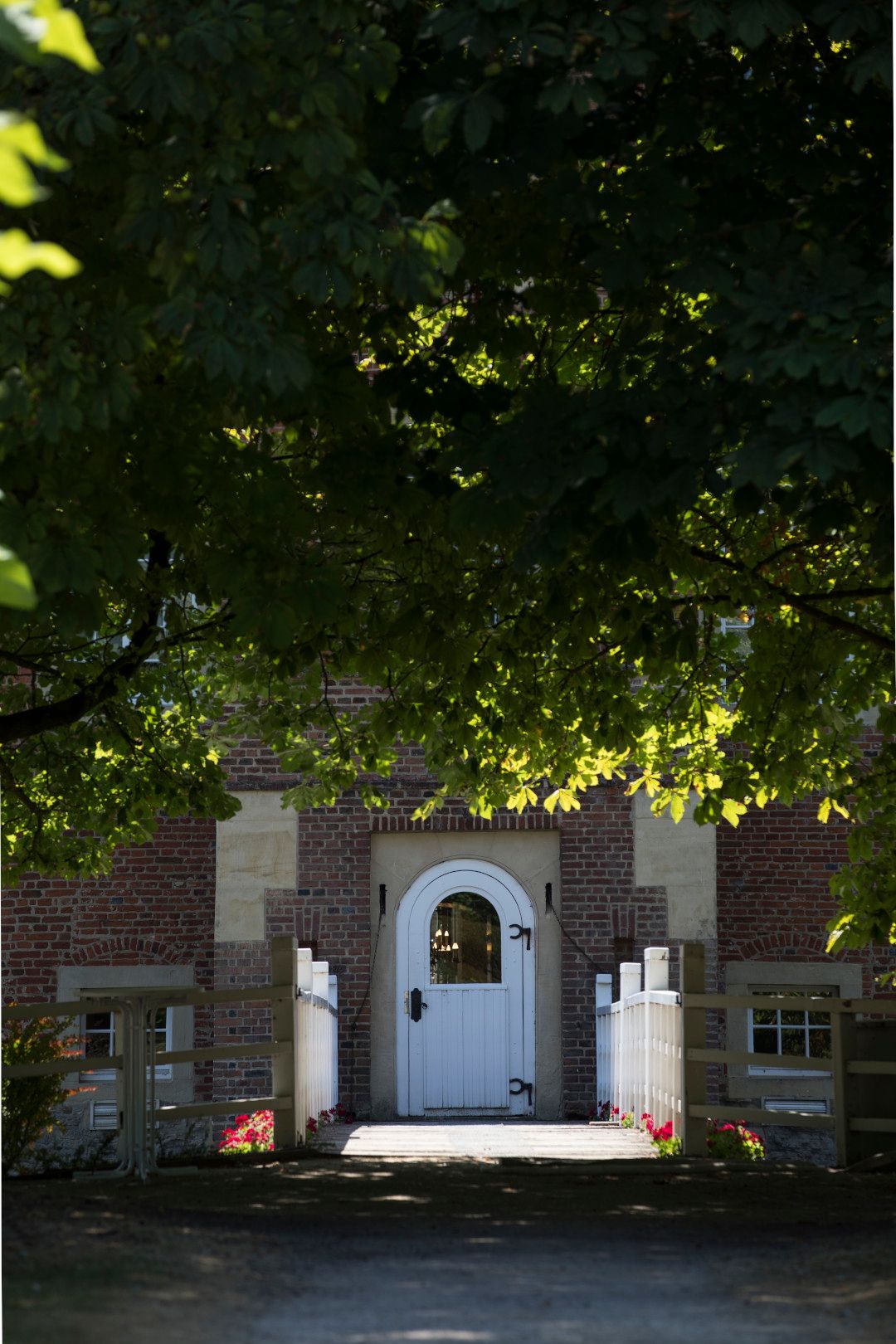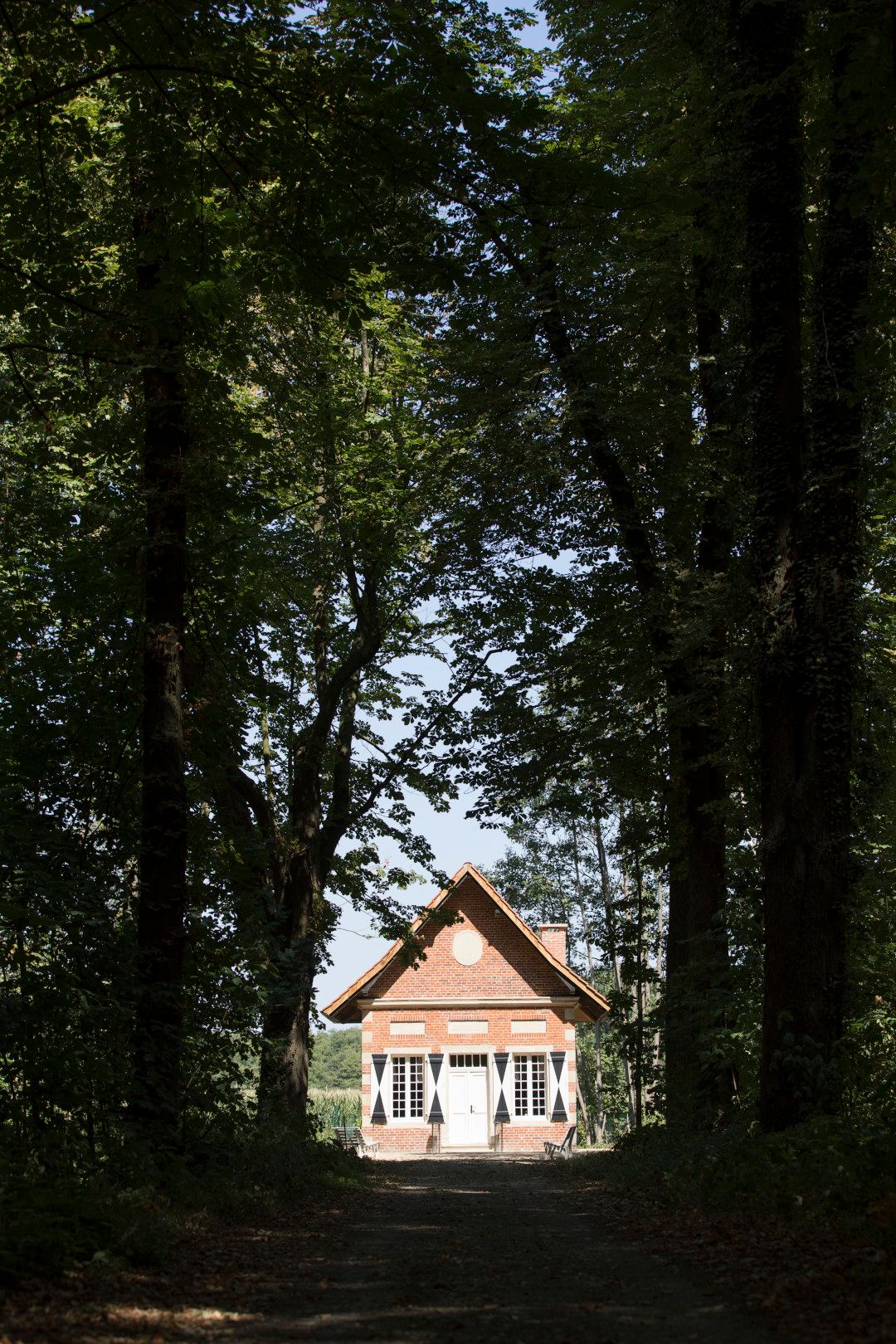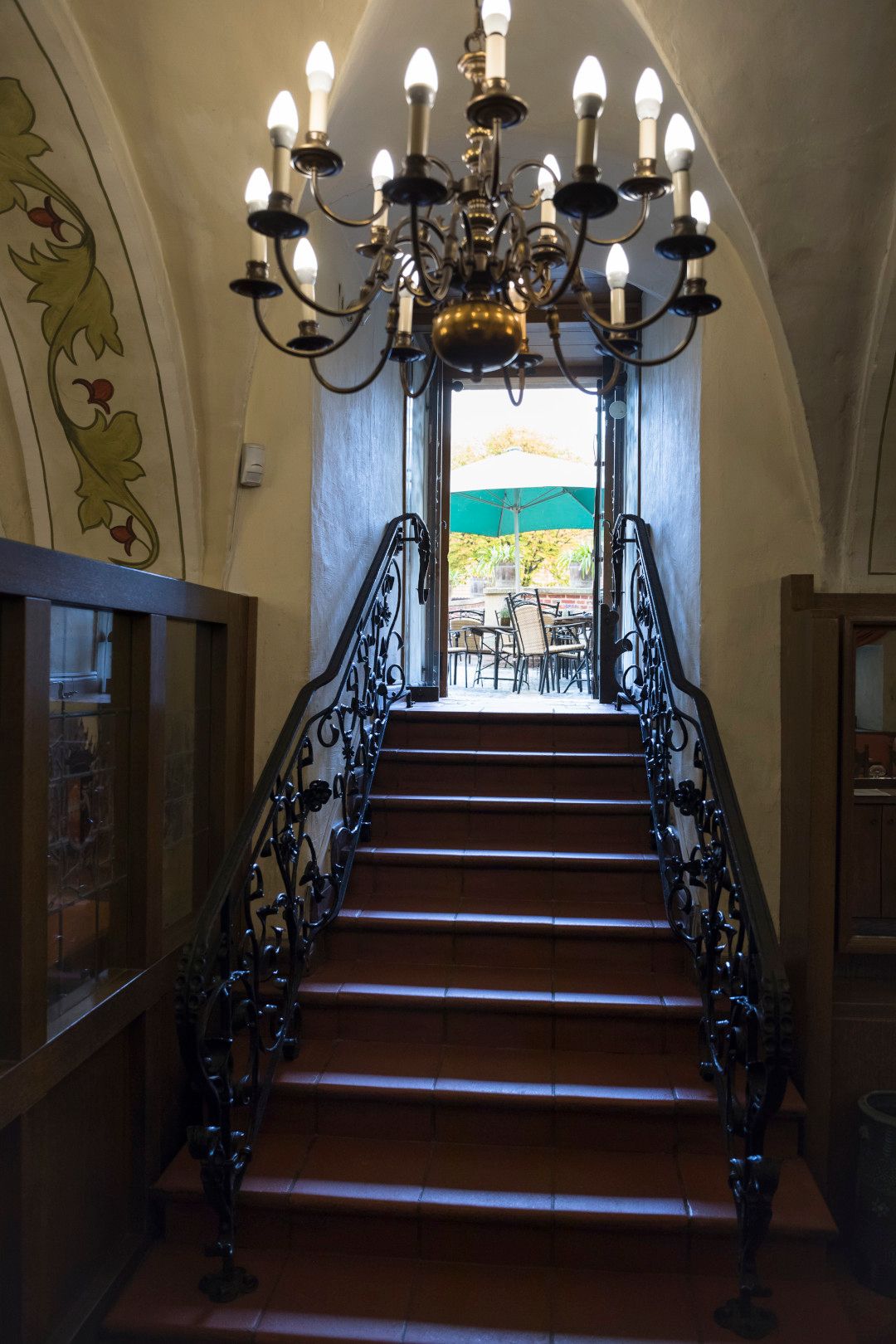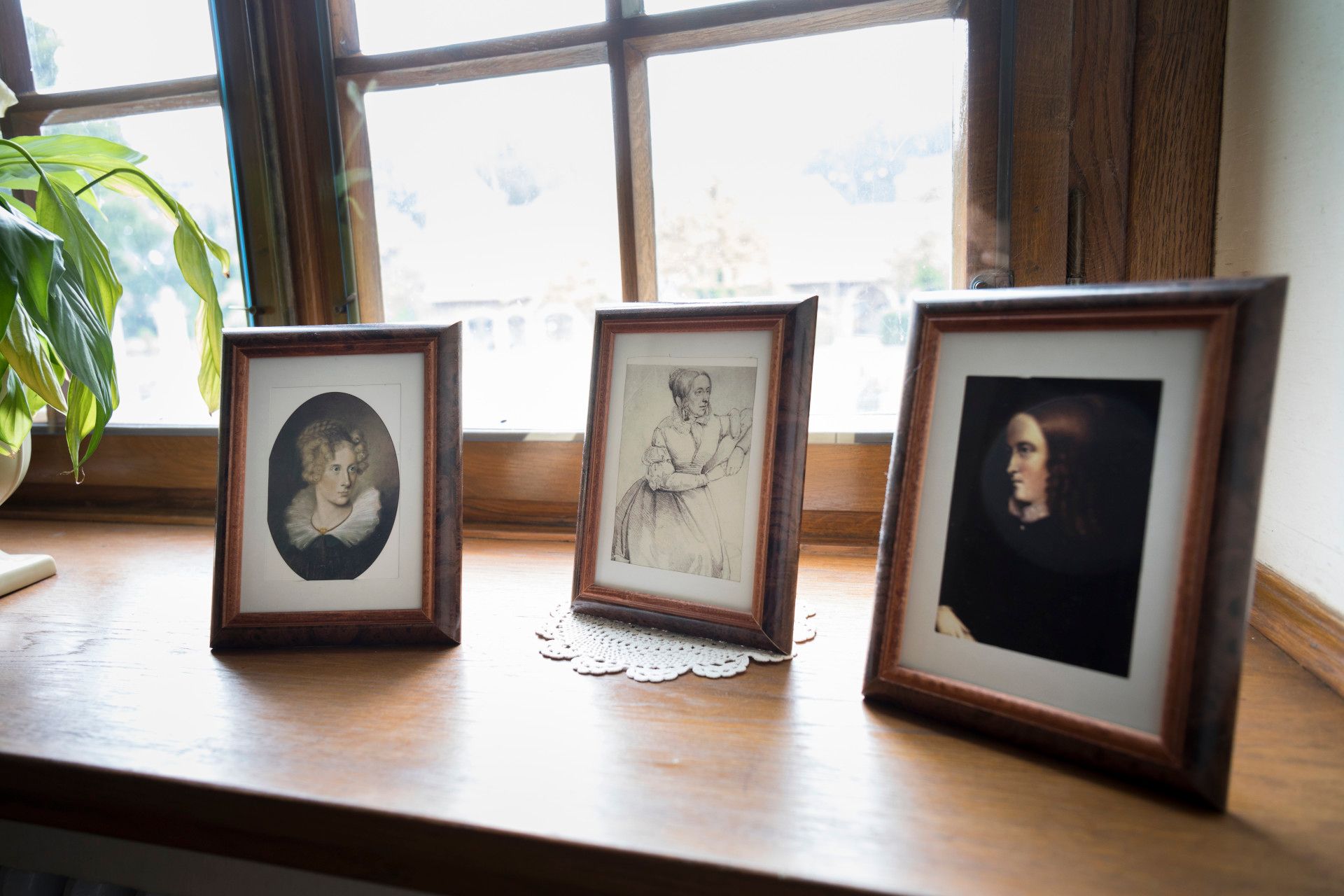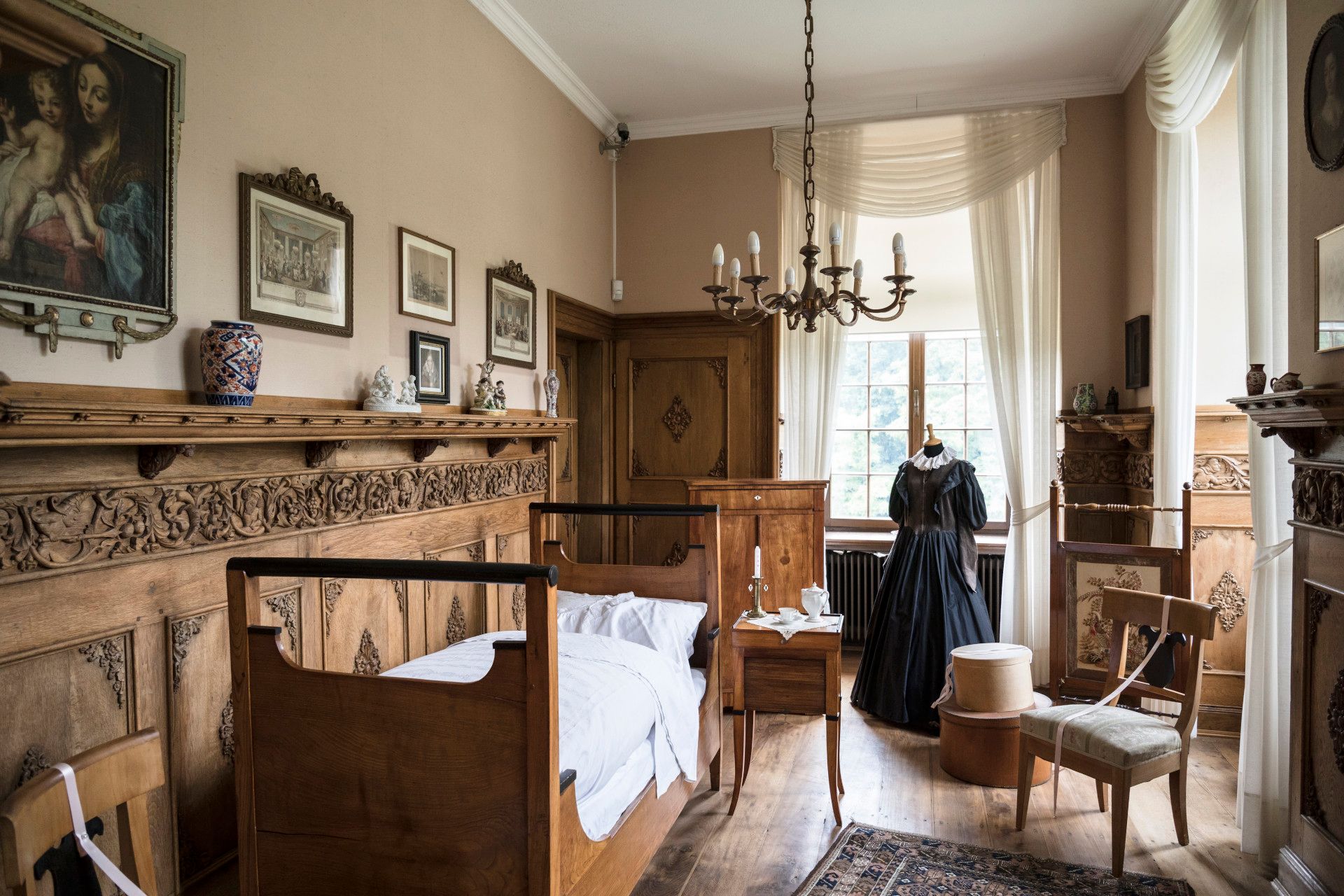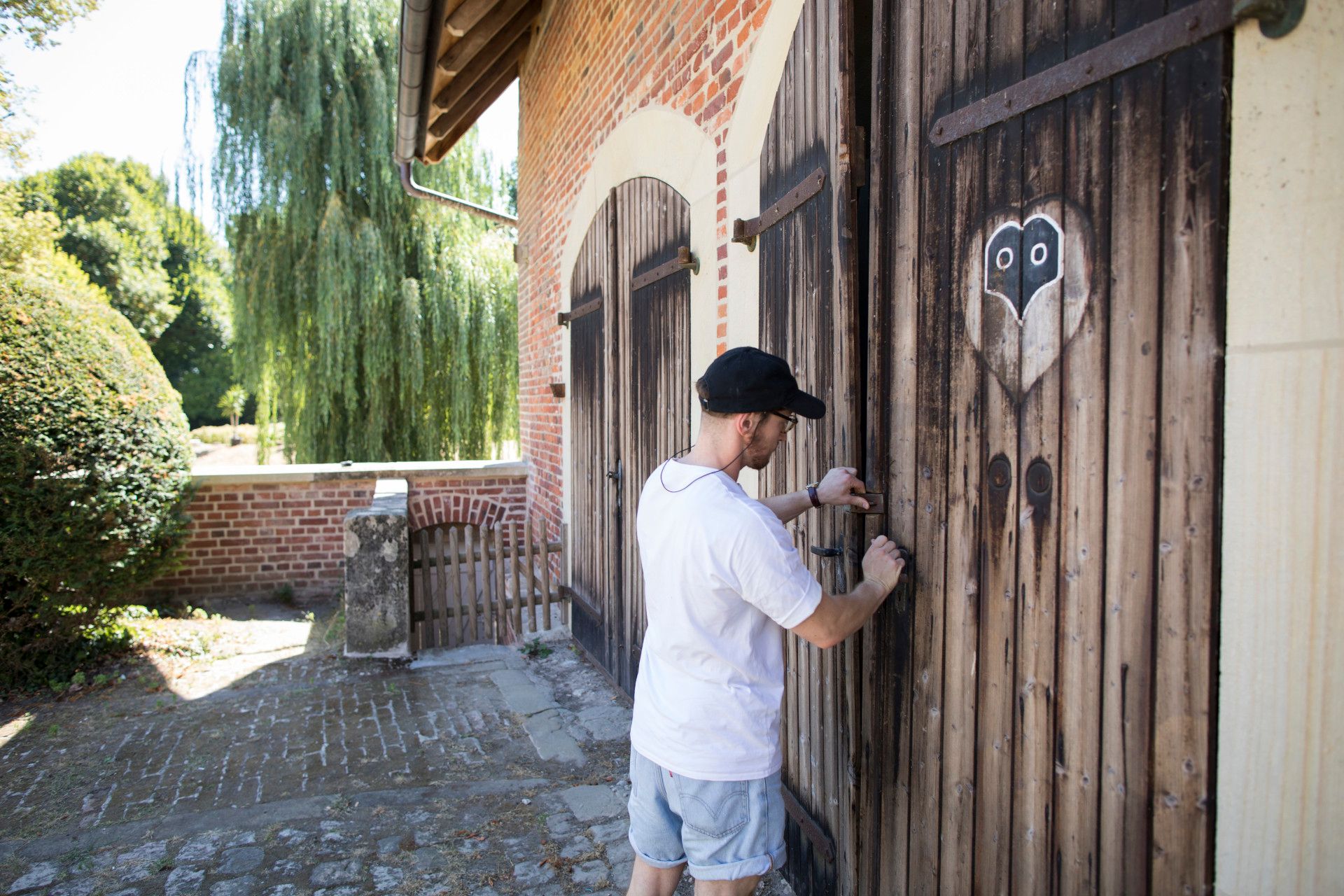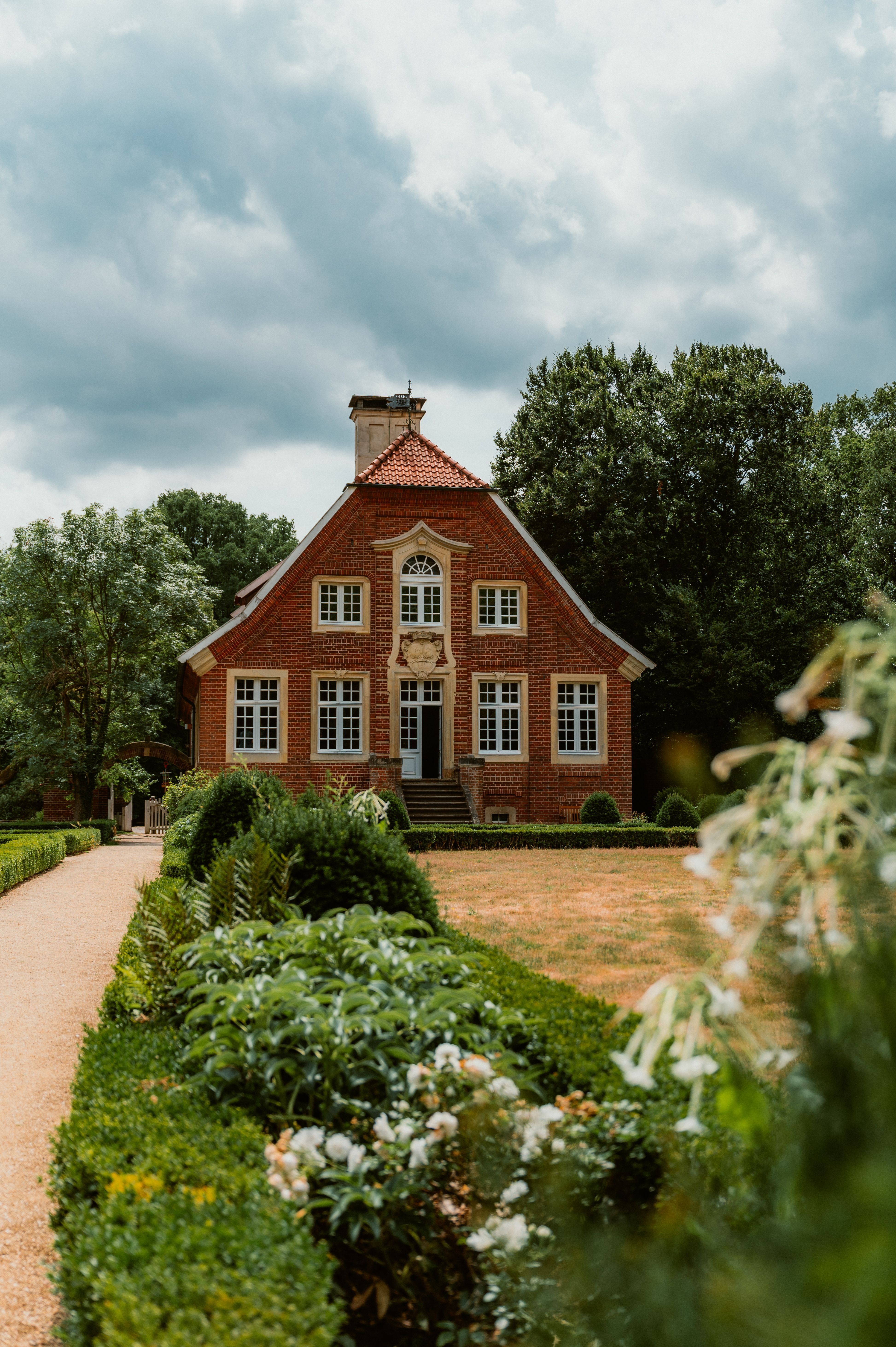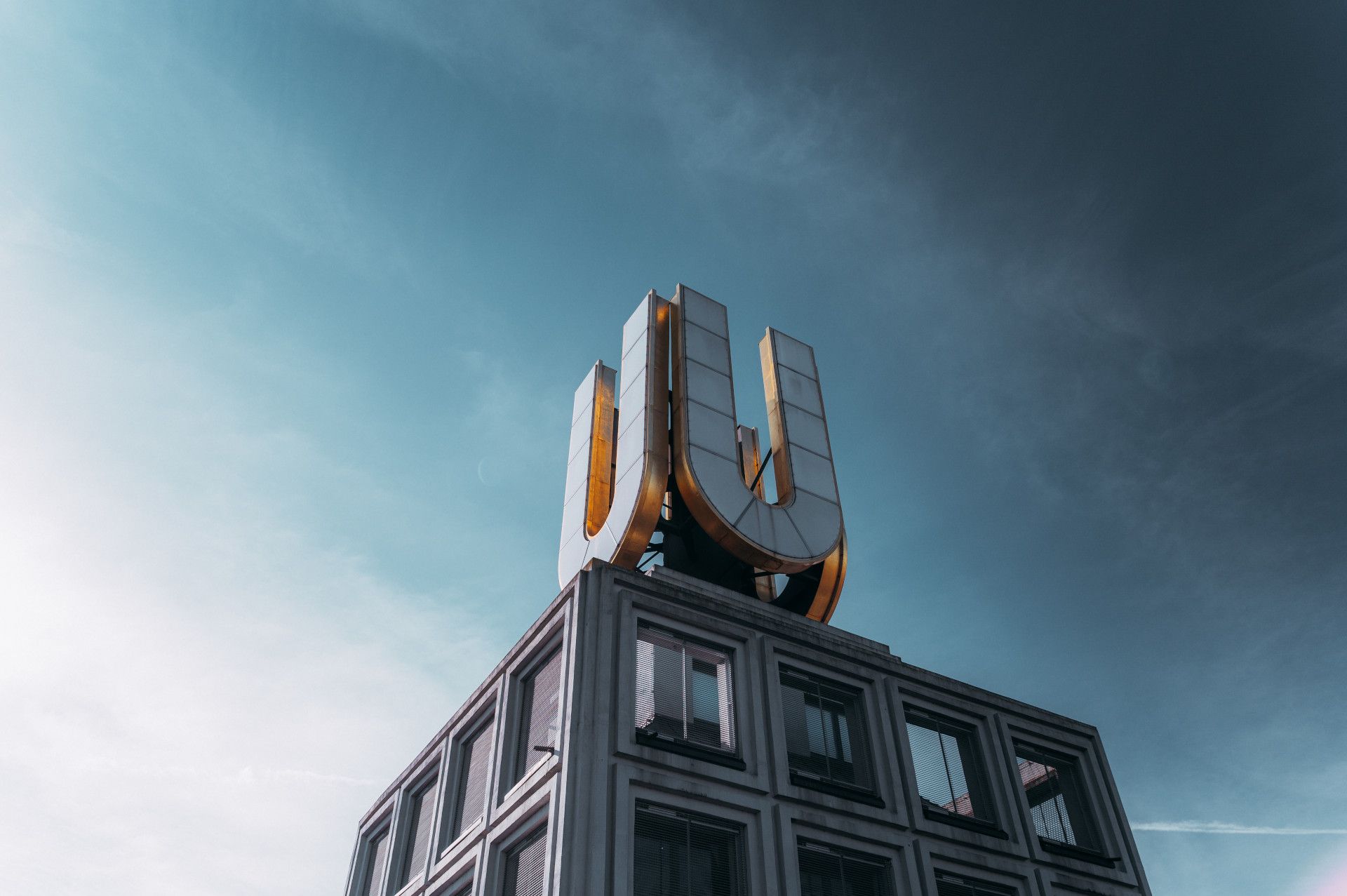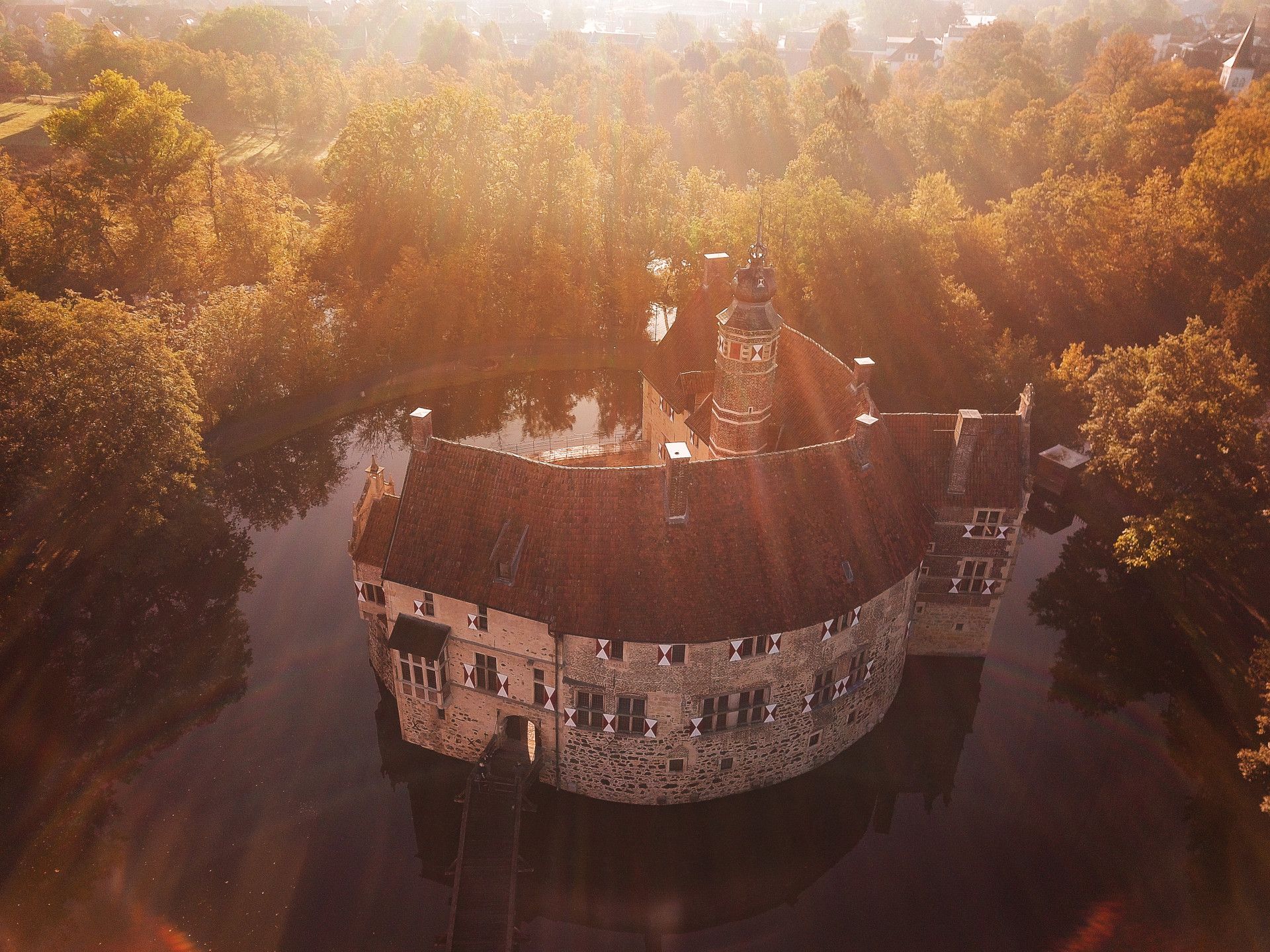Jörg Albrecht was still a teenager when he wrote his first literary texts. "Poetry of all things." When he thinks about what he put down on paper back then, he has to smile and quickly adds: "I stopped when I was 19 years old." But the now 37-year-old has continued to write, has published four novels and was honoured with literary awards early on. Now he is sitting on the terrace of Burg Hülshoff in Havixbeck, the birthplace of poet Annette von Droste-Hülshoff, talking to DeinNRW about his new role as founding director and artistic director of the "Centre for Literature". It's almost as if he's come full circle.
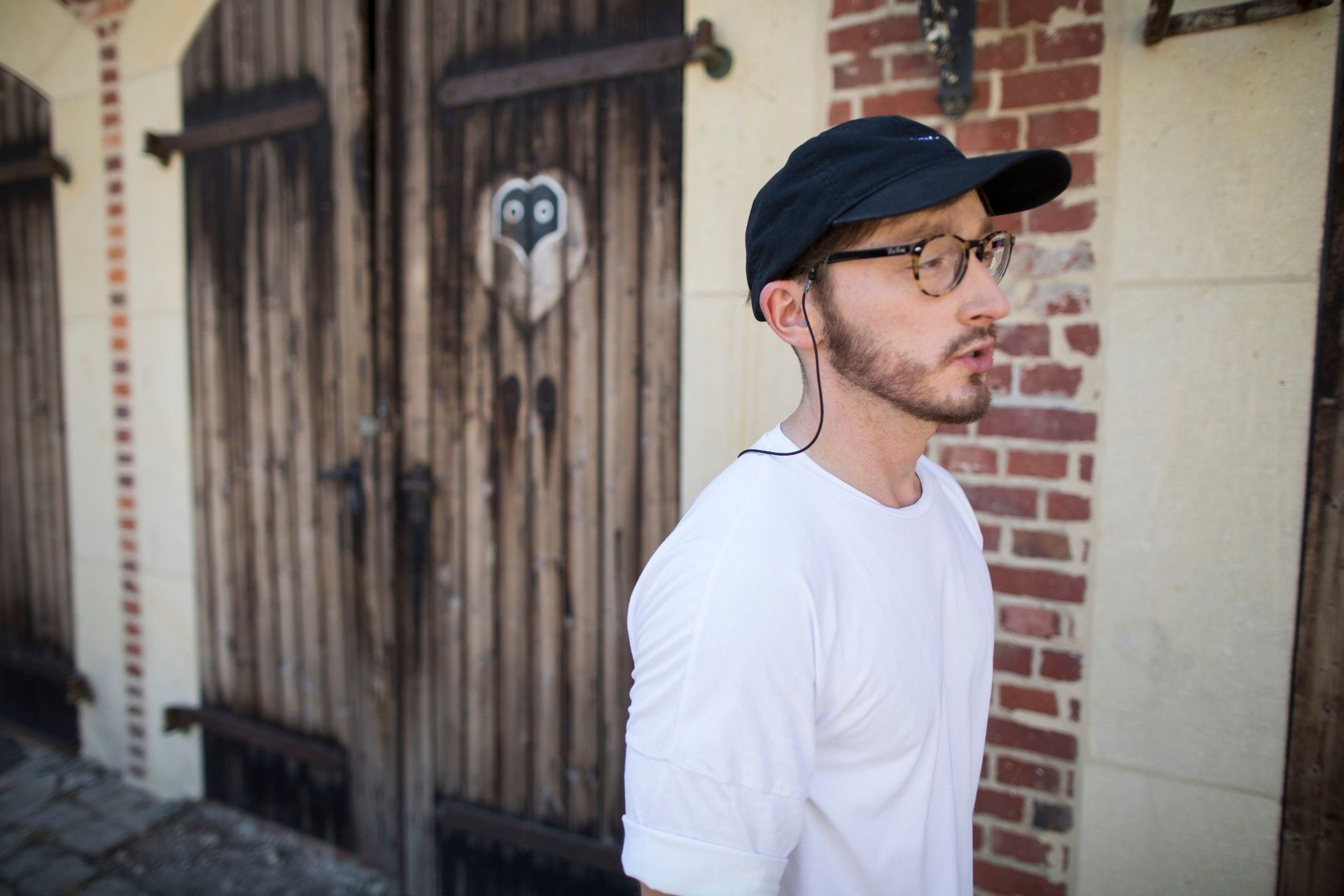
Tourismus NRW e.V., Ralph Sondermann, Jörg Albrecht vor Burg Hülshoff, Münsterland Tourismus NRW e.V., Ralph Sondermann, Gartenanlage vor Burg Hülshoff, Münsterland Tourismus NRW e.V., Ralph Sondermann, Gartenanlage vor Burg Hülshoff, Münsterland Tourismus NRW e.V., Ralph Sondermann, Gartenanlage vor Burg Hülshoff, Münsterland
It is one of those beautiful summer days when we visit Jörg Albrecht at his new place of work. The hydrangeas in the park at Hülshoff Castle are blooming in glorious colours. Walkers take a break in the shade of a tree. They take an interested look at the bust of the poet and enjoy the view of the largely preserved Renaissance ensemble with the manor house, outer bailey and the pretty pavilion at the end of the avenue that leads from the castle directly into the forest. Annette's teahouse. The ducks take a leisurely stroll in the moat, occasionally diving under the water and sticking their tails up to cool off a little. Meanwhile, a group of cyclists waits in the inner courtyard for admission to the castle. Even more than 30 degrees Celsius couldn't stop them from taking a look at the richly stocked library of the aristocratic von Droste-Hülshoff family and the many personal mementos of the poetess on their tour through Münsterland. Other day-trippers stop briefly in front of the oversized, artistic portrait of the poetess at the entrance to the outer bailey before securing a seat under the parasol in the small castle café. Others seek immediate refreshment in the vaulted cellar.
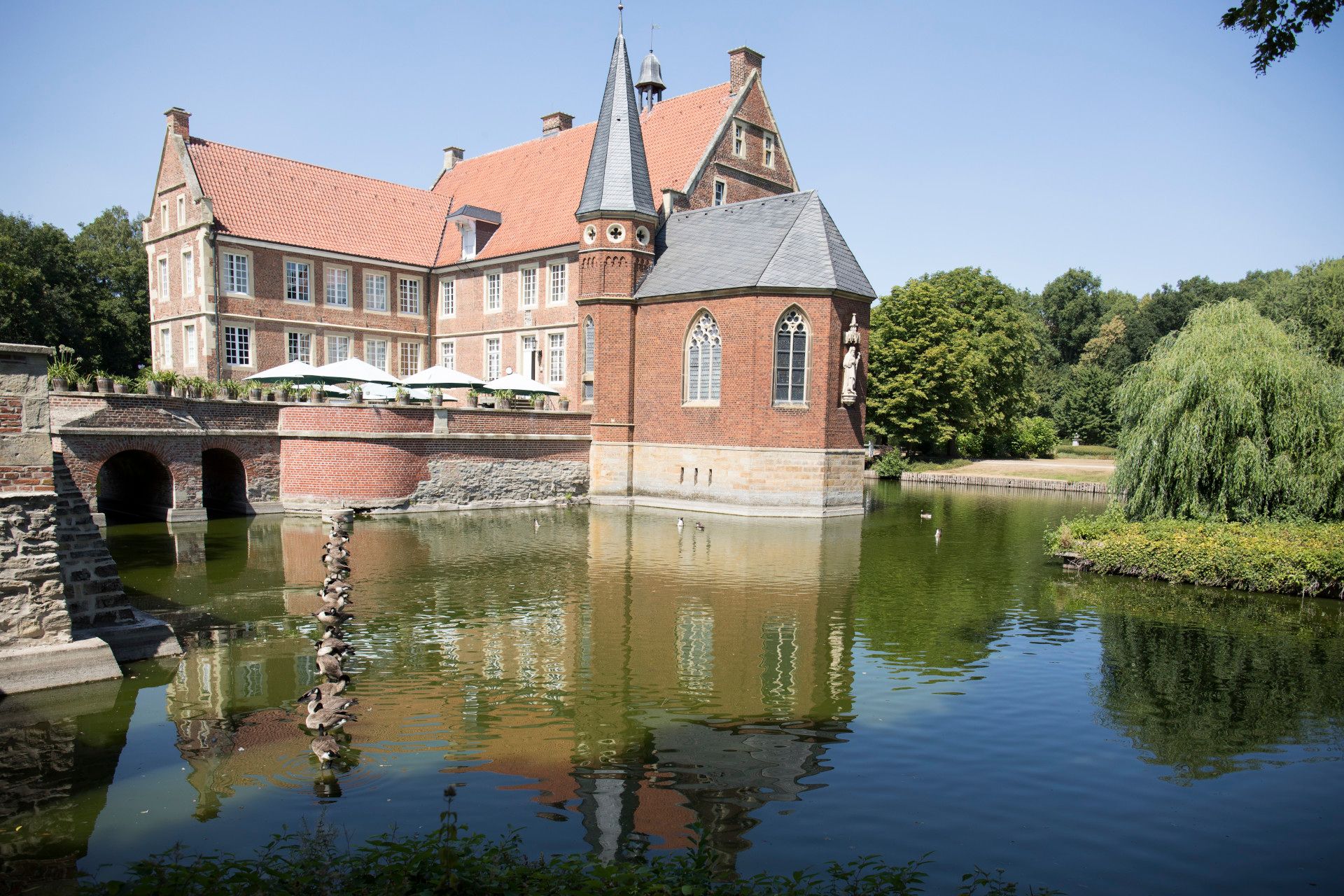
"This is great," says our host all at once, looking around as if discovering the beauty of this place anew every day. A place of historical significance that he should preserve and make hip for the future.
"You have to have a treasure like this first, a place where people like to be and where you can add something yourself and invite guests."
That sounds like relaxed working. Not at all. Because Albrecht didn't come to Havixbeck as a "lord of the castle". Or even to hold court. The man with the round glasses, baseball cap and carefully trimmed beard has a mission, or rather: a vision. Under his management, Burg Hülshoff is to become a multifunctional event and exhibition centre in which there are no longer any boundaries between genres. His task: "To think transformation, break up old patterns and create new perspectives."
"My task? To think transformation, break up old patterns and create new perspectives."
In order to set this process of "events, research and residencies" in motion, the 37-year-old left the bustling metropolis of Berlin at the beginning of the year and opted to live in Münsterland. Some people in his neighbourhood may have been surprised by this move, but Albrecht - who grew up in Dortmund - appreciates the region. Dozens of palaces and castles are strung together like a string of pearls, and there is hardly a better region to explore by bike than the rural surroundings around the student city of Münster.
"Many people underestimate the countryside," says Albrecht, even before we ask. "But what do city and countryside actually mean? What is different today than it was ten years ago? What makes places what they are? These are the questions that concern us here." He doesn't have any answers yet. "But that's exactly why I'm here," says Albrecht, recognising parallels between his work and the work of Annette von Droste-Hülshoff. After all, it was she who once turned the castle into a place of poetry and perceptive reflection on the world. Her admirer not only calls her a "linguistic magician". He was particularly impressed by the fact that in her works she had already addressed issues such as urban development, the role of women, nature, religion and, ultimately, globalisation. "All topics that also concern us today."
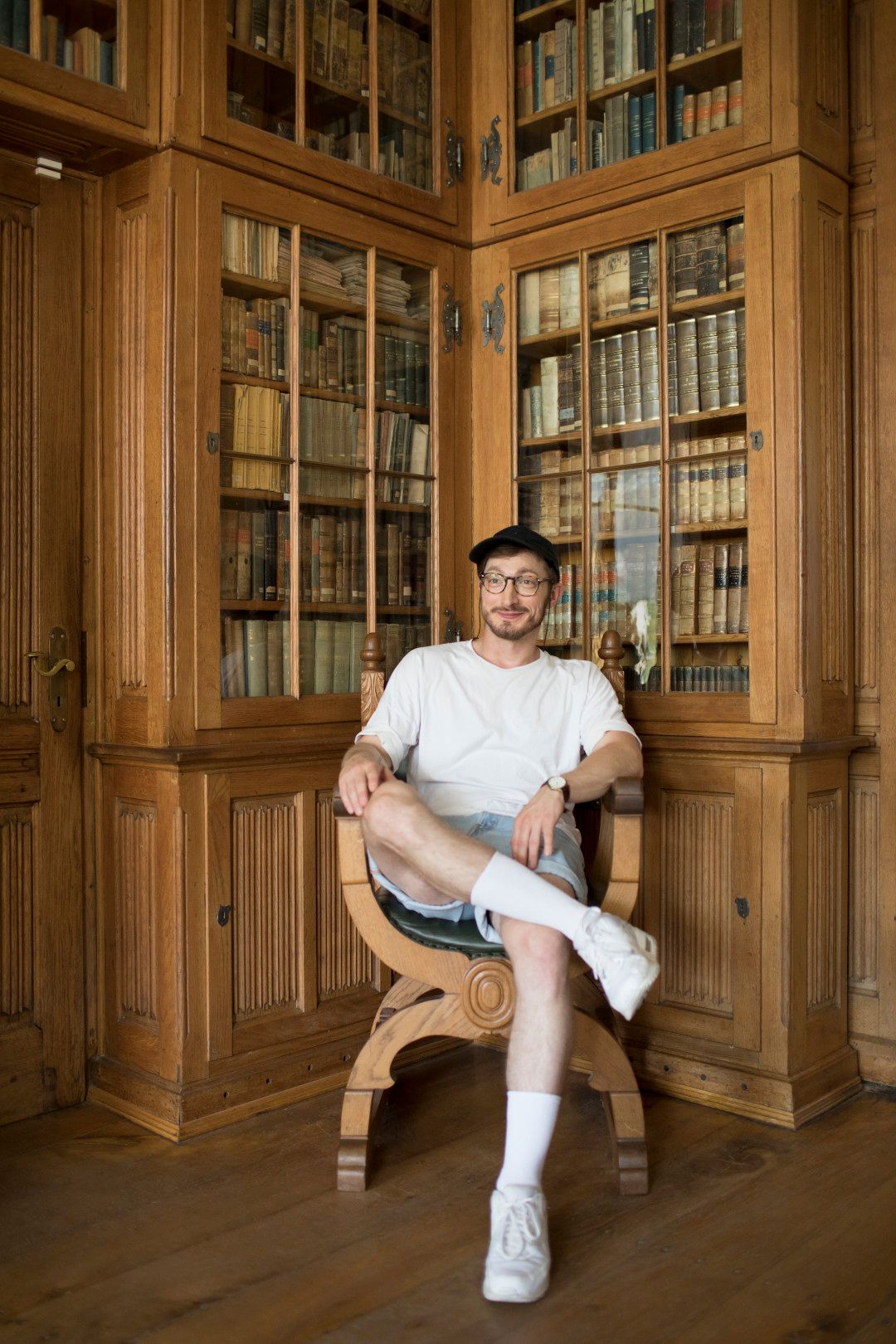
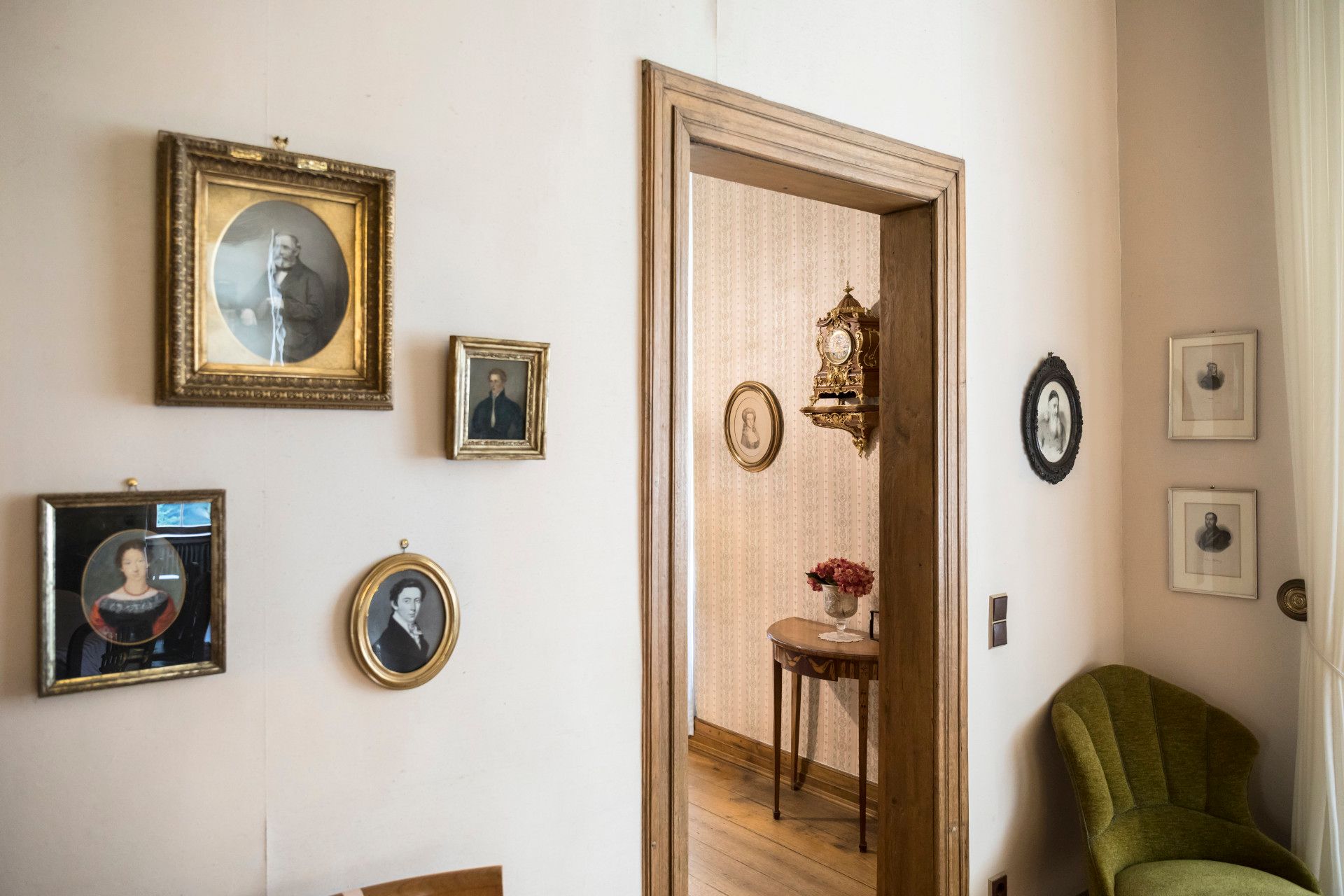
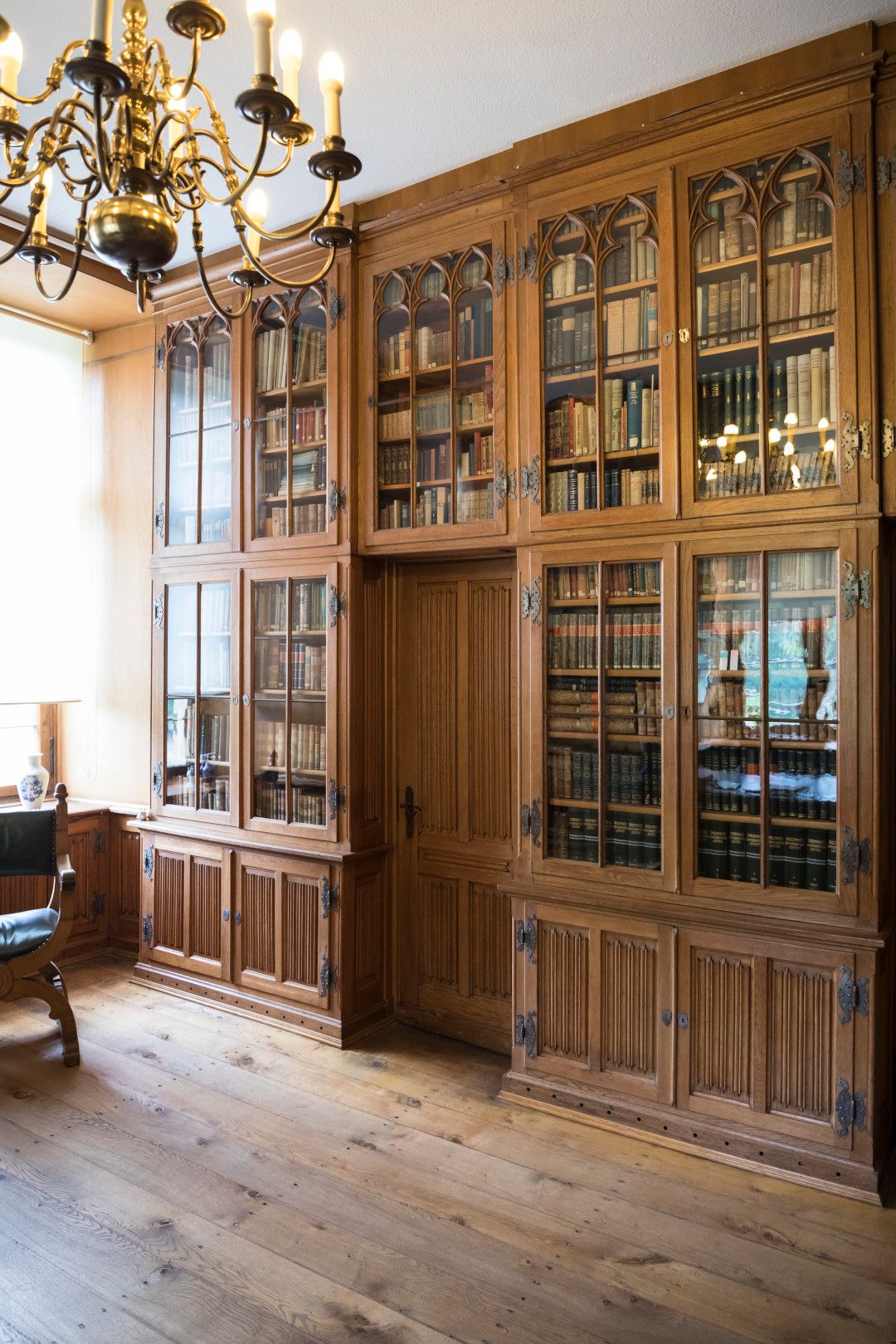
"Many people underestimate the countryside. But what do urban and rural mean anyway? What is different today than it was ten years ago? What makes places what they are? These are the questions that concern us here."
Albrecht therefore not only wants to bring fellow writers to his new home and organise readings. The castle will also open up to other art forms such as theatre, performances, music, media and architecture. The new landlord wants to stimulate exciting debates on social issues and invites all visitors to accompany the process. The conversion of the historic site was launched in autumn with the literary festival "Schaustellen", a kind of cultural fair with the castle as its centrepiece. Videos were projected onto the walls and an oversized jackhammer symbolised the start of construction work. Events such as a lecture performance, language lab, sound comic and an audio installation entitled "Dienstbare Geister" are still to come.
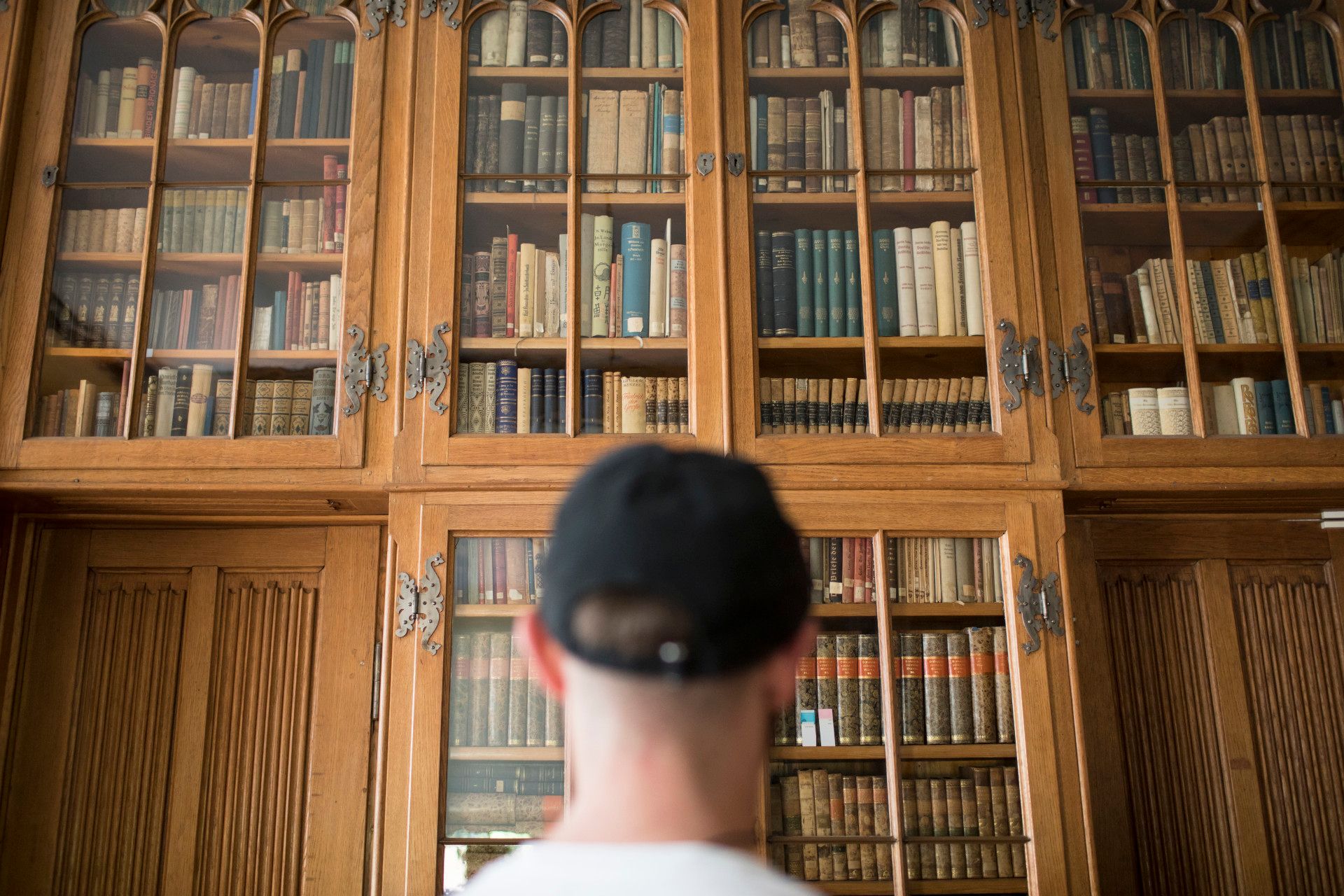
It will probably be a few more years before the spatial remodelling is complete. The outer bailey, an old cattle shed, has already been gutted and the floor is still sandy. Only a few old electricity boxes are still hanging. As an exception, Albrecht takes us up to the somewhat dilapidated attic today. Another treasure that he wants to make accessible to people. Hopefully, international artists will soon be presenting their view of the world here. Accommodation and conference rooms are to be created in another part of the building. And maybe even an office for Jörg Albrecht at some point. Because his desk is still in Münster. "There's simply no room in the castle," explains the man who recently had the three words Liberté, egalité, diversité tattooed on his right forearm. Freedom, equality, diversity.
Three words that not only describe the life motto of the writer and actor. They also symbolise what is set to happen at Burg Hülshoff over the next few years. In addition to events and discussions, new formats and experiments, the "Centre for Literature" will of course also focus on the legacy of the castle's former daughter. As in the past, the Droste Days will be dedicated to her once a year. There are also plans to set up a Droste Research Institute, which will "take the poetess out of the regional sphere and bring her closer to an international audience". All dreams of the future? Not yet. But the foundation stone has been laid, and in Jörg Albrecht the right "builder" has been found.
Tourismus NRW e.V., Ralph Sondermann, Treppenaufgang in Burg Hülshoff, Münsterland Tourismus NRW e.V., Ralph Sondermann, Bilder in Burg Hülshoff, Münsterland Tourismus NRW e.V., Ralph Sondermann, Ausstellungsraum in Burg Hülshoff, Münsterland Tourismus NRW e.V., Ralph Sondermann, Jörg Albrecht vor Holztor der Burg Hülshoff, Münsterland
Family, friends, NRWThree questions for Jörg Albrecht
Jörg, you have 48 hours of free time. What would you definitely do with this time in NRW?
Jörg: If I have that much time, I'll visit all my friends and family in the Ruhr and Rhineland. Firstly, of course, I go to my parents in Dortmund, then on to Bochum. There I visit my godchild. I also have family in Düsseldorf and in the countryside between Cologne and Bonn.
Which place in NRW did you recently rediscover for yourself?
Jörg (laughs): I just have to say it. Hülshoff Castle, of course. What else? I discover something new here every day. And that will probably increase over the next few years. The places are gradually being transformed. So what we're doing here is a programmed change of perspective, so to speak.
Your personal favourite place in NRW.
Jörg: Definitely the Ruhr University Bochum. It's great there. I think it's incredibly beautiful ... and the great architecture.
